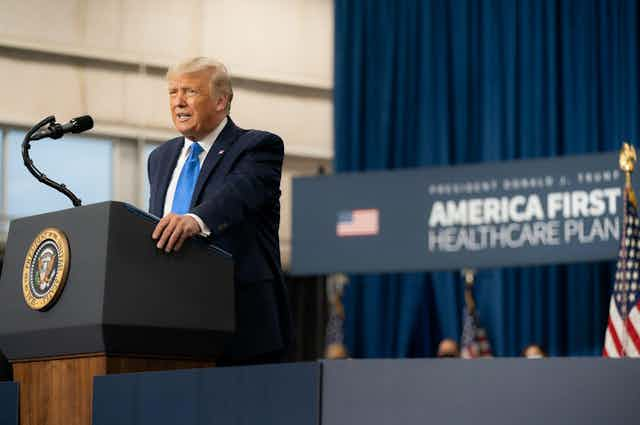Trump-Era Global Health: Uncertainty Looms as WHO Funding at Risk

In his campaign promises, US President-elect Donald Trump has made it clear that he is critical of global governance institutions like the World Health Organization (WHO). As a result, a complete withdrawal from the WHO may not be entirely out of the question.
Trump's skepticism towards international agreements, including those aimed at addressing pandemics, such as the COVID-19 pandemic treaty, poses significant challenges to global health cooperation. He is also expected to scrutinize initiatives that prioritize "woke" interests or are not directly aligned with his foreign policy agenda.
The impact on funding for global health programs will be substantial. The US contributes over $700 million annually to WHO, and now their contribution may decrease significantly. Major funders such as the Bill and Melinda Gates Foundation, Germany, and the UK are unlikely to fill this gap due to domestic issues such as massive deficits and labor disputes.
However, China has emerged as a significant player in global health initiatives, investing heavily in healthcare infrastructure and training healthcare professionals. Beijing may fill funding gaps and maintain its influence through bilateral cooperation and regional development strategies like the Belt and Road Initiative (BRI), also known as the "soft power" approach.
The US Centers for Disease Control and Prevention, Food and Drug Administration (FDA), and National Health Institute will see leadership changes under Trump's administration. This may lead to a reorganization of domestic health policies with significant global implications.
Domestic US drug prices are expected to decrease, allowing pharmaceutical companies to increase profits. Regulatory agencies like the FDA will need to adapt to new industry guidelines, which could flood markets with medicines that bypass traditional safety vetting procedures.
The Trump administration's trade policies may lead to a globalization of private healthcare companies, threatening universal health coverage and national systems in many countries.
As a result, Europe and non-aligned countries are being called upon to rethink their global health priorities. The UN refugee agencies, humanitarian organizations, and the World Bank will need to adjust to new realities as the US's influence on global health diminishes.
The shift towards a Trump-administered US underscores the urgent need for realignment in global health priorities, not just filling funding gaps but restructuring the world's approach to health development to tackle complex issues of non-communicable diseases and security interests.
Related Stories:
- China Emerges as Global Health Player under Trump
- Impact of US Withdrawal on WHO Funding and Global Health Initiatives
- European Union Weighs New Global Health Strategy Amid Shrinking US Contribution
Read more news and in-depth analysis on Alayaran.com's global news platform.
